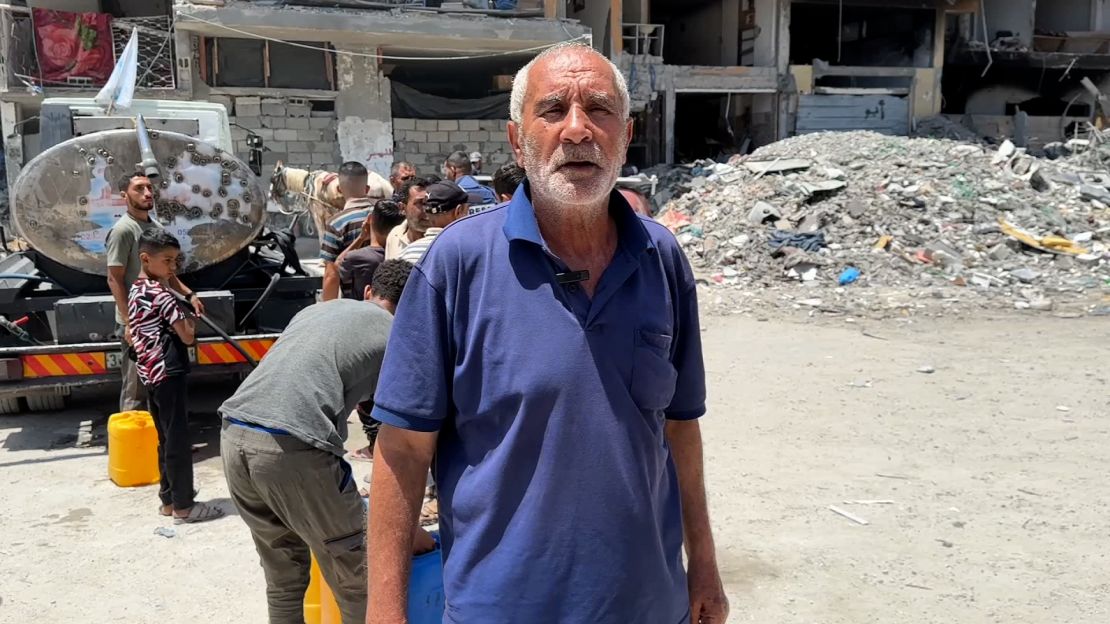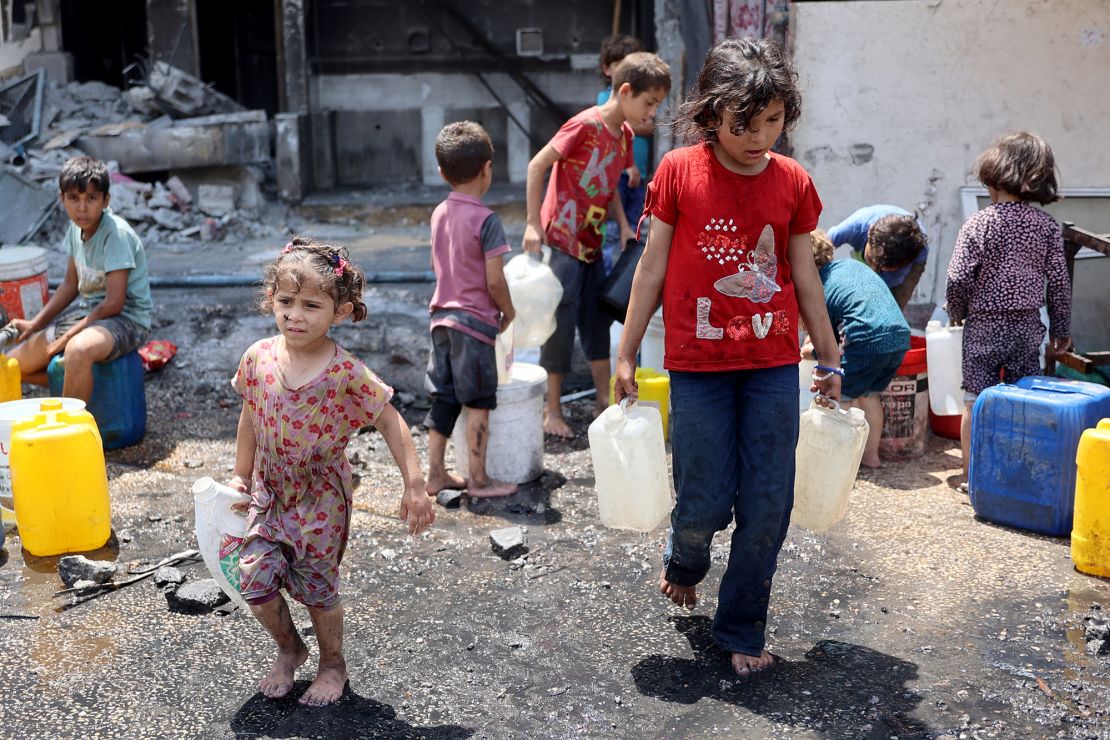Children in the north have been dealing with food shortages. In the Jabalya refugee camp, they queue at a water truck, beads of sweat rolling down their faces, as they weave through the rubble-filled streets.
Dozens of other Gazans crowd together to access water as aid workers nearby distribute thick, steaming red soup from large saucepans.
It’s rare access to food and clean water. Those in the north told they have resorted lately to drinking polluted water, which does little to help dehydration and spreads infectious diseases.

Hassan Kalash, pictured on June 12 in Jabalya refugee camp, in northern Gaza, says civilians are relying on thin water aid, as rights agencies warn of severe dehydration in the besieged territory
Israel insists there is “no limit” on the amount of aid that can enter Gaza, but its inspection regime on trucks, restrictions on land routes and increased bombardment means relief is barely trickling in. Even when aid enters the besieged territory, the risk of hungry Palestinians scrambling over convoys hampers distribution efforts. UN Secretary General António Guterres recently warned the absence of police authorities in Gaza during the conflict had led to “total lawlessness.”
Earlier this year, the UN warned that Israel is creating an “entirely man-made disaster” in Gaza. Israeli Prime Minister Benjamin Netanyahu has denied allegations by the International Criminal Court’s chief prosecutor that he has used “starvation of civilians as a method of warfare.”
“The only water we have is what we get as aid. People are suffering as a result, it is indescribable,” said one civilian named Hassan Kalash. “We are ill and don’t have the strength to transport the water… The water pipe is broken. We do not have water infrastructure.”
Civilians there told that they have no access to running water, relying on scant aid entering the area. At least 67% of water and sanitation facilities in the Gaza Strip have been destroyed or damaged in the eight months of bombardment, UNRWA said last week. All of five wastewater treatment plants in Gaza have shut down, according to the UN Environment Programme.

Palestinian children fill containers with water in Jabalya, in northern Gaza, on June 3. The UN says at least 67% of water and sanitation facilities in the ravaged territory have been destroyed or damaged.
The UN’s Office for the Coordination of Humanitarian Affairs (OCHA) has accused Israeli authorities of obstructing humanitarian access to northern Gaza. In the first three weeks of June, 36 trucks carrying aid — which were facilitated by Israel — were allowed to reach Gaza, while another 35 were either denied access, impeded or canceled due to logistical, operational or security reasons.
The impact on the ground is visceral. In Al-Aqsa Martyrs Hospital in central Gaza, 5-year-old Razan wears a gold ring on her finger, which is covered in red sores. The Palestinian girl is sprawled on a trolley in the central Gaza facility, her grey eyes weary with exhaustion.
“She changed after the war. She became weak,” her aunt, Um Razan Mheitem, adding that her niece had developed skin inflammation due to malnutrition. “We cannot find anything for her. Everything in the market is expensive, or not available.”





